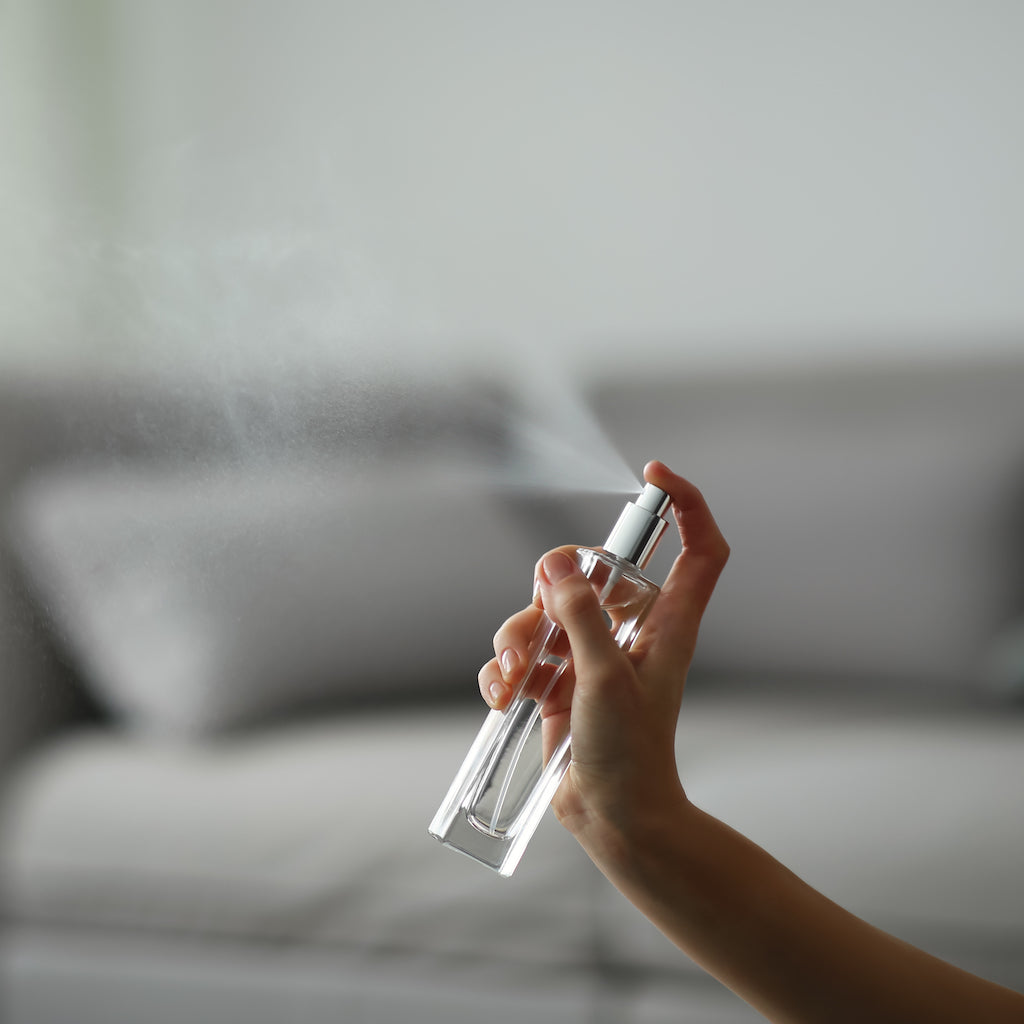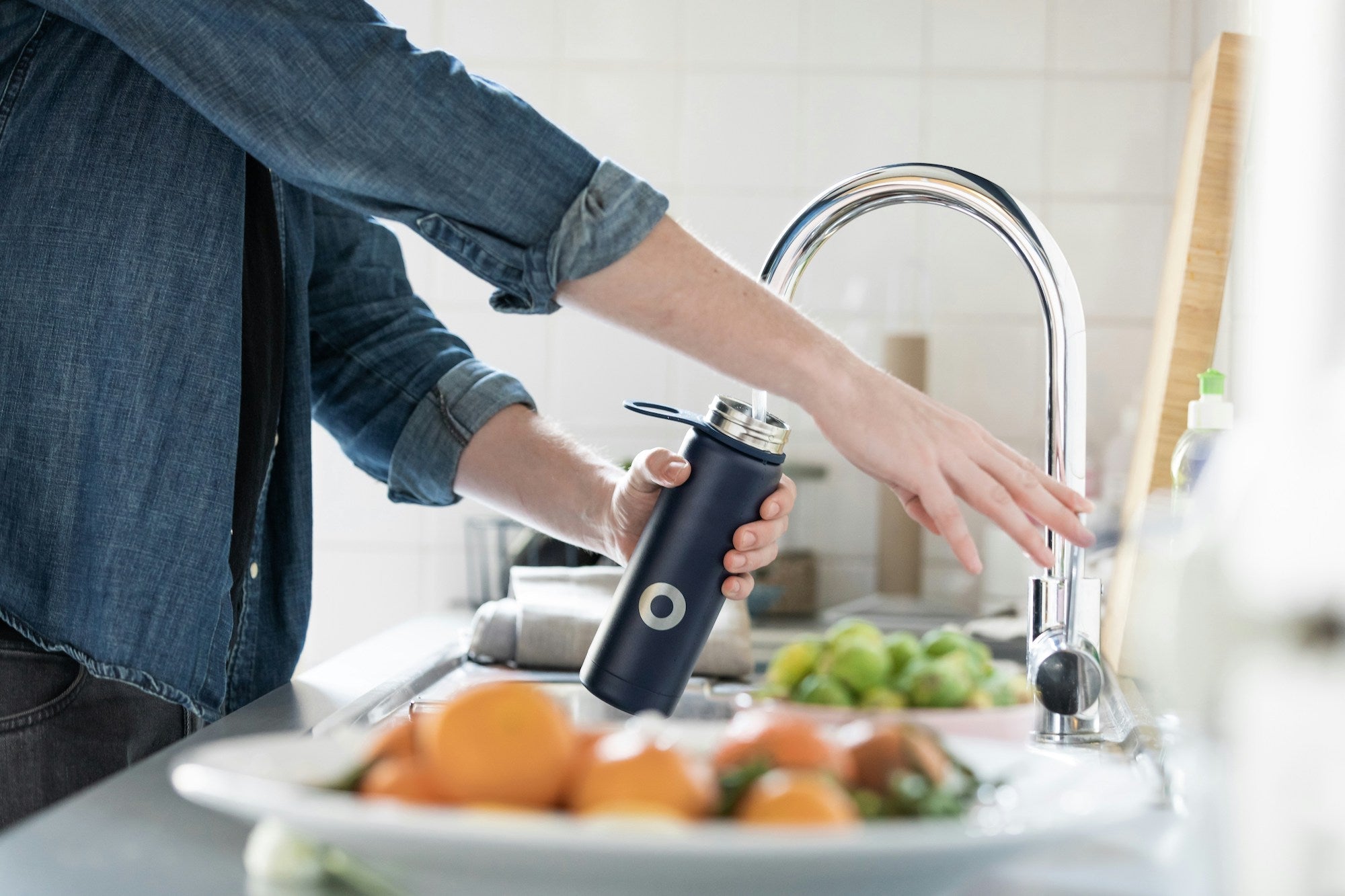
If you go to your bathroom or kitchen and look at the labels on your lotion, perfume, body wash, shampoo, dish soap and kitchen spray, does it say fragrance or parfum on the label?
Artificially scented products are generally perceived as pleasant, a harmless means of self-expression and certainly not a significant health concern, so we don’t really think twice about using them.
But have you ever wondered what’s actually IN the ingredient “fragrance”? We certainly did and, some time ago in the very early stages of developing The Botanist products, we started to do some research to really understand what’s behind our nice smelling home and personal care products.
What we discovered was much worse than we would have ever suspected about this innocent-looking and seemingly-harmless ingredient (which is why we opted to use pure essential oils in our range) and there’s a good reason why companies would rather NOT disclose what it consists of.
Here’s what we know!
Why is fragrance bad for our health?
The term “fragrance” or “parfum” on a cosmetic ingredients list usually represents a complex mixture of dozens of chemicals. ‘Fragrance’ is considered a specific ingredient, and no disclosure of the potentially hundreds of chemicals within the fragrance is required.
Because fragrance is considered a trade secret under the Fair Package and Labeling act of 1966, it allows companies to not list ingredients so their formula cannot be replicated easily, and unfortunately this gives brands an opportunity to add in cost effective, but toxic, chemicals to their products to make a scent that is “better” than natural.
According to the Environmental Working Group, the average fragrant contains about 14 'secret' chemicals that aren’t listed on the label, many of which are linked to hormone disruption and allergic reactions, as well as about 80 percent of them not being tested for human safety.
Even if most people aren’t likely to suffer immediate symptoms from exposure to fragrances, there are long-term chronic health effects connected to these chemicals that we don’t fully understand yet. We need to take into account that we are exposing ourselves every day to multiple scented household products and for long periods of time.
What chemicals are actually in fragrance?
According to the Committee on Science & Technology, approximately 95% of chemicals used in fragrances are synthetic compounds derived from petroleum. What’s more, petroleum-based chemicals are being found to cause significant attritional effects to the nervous system and immune system after prolonged exposure.
Manufacturers often use synthetic chemicals simply because they work well to disperse the fragrance into the air and cause it to linger. Also, these chemicals help to cheaply recreate the scent desired.
For example, diethyl phthalate (prounced tha-late), or DEP, is widely used in cosmetic fragrances to make the scent linger. Phthalates are choice ingredients in cosmetics because they are cheap and versatile. However, the European Commission on Endocrine Disruption has listed DEP as a Category 1 priority substance, based on evidence that it interferes with hormone function.
EWG found that about 75 percent of products that list fragrance contain the hormone disrupting chemical, phthalates.
So what can we do to protect ourselves?
Like with many other personal product worries, the main, and easiest, strategy is to check the labels on the products you buy. Try to avoid any product that simply labels “fragrance” with no other explanation. If a brand does list the specific ingredients that make up the fragrance, do some research online to understand if they pose a potential health hazard.
Some products may say “fragrance-free” or “unscented” but be wary here as well - many times these phrases mean that they just contain a chemical that masks the scent of other chemical ingredients.
Also watch out for products labeled "natural," "natural scent," "natural fragrance," or "non-toxic" - these products often still contain artificial fragrances since the use of these terms is not regulated.
And finally, look for products that use naturally derived scents, like pure essential oils.







